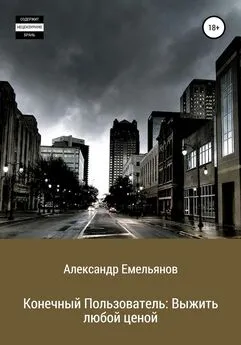Пользователь - o 3b3e7475144cf77c
- Название:o 3b3e7475144cf77c
- Автор:
- Жанр:
- Издательство:неизвестно
- Год:неизвестен
- ISBN:нет данных
- Рейтинг:
- Избранное:Добавить в избранное
-
Отзывы:
-
Ваша оценка:
Пользователь - o 3b3e7475144cf77c краткое содержание
o 3b3e7475144cf77c - читать онлайн бесплатно полную версию (весь текст целиком)
Интервал:
Закладка:
himself. Freddi, too, was a musician, a child of Bach and Beethoven and Brahms just as much
as Kurt. Many compositions those two Germans had played together, and the clarinetist had
given the Komponist many practical hints about writing for that instrument.
When Lanny had mentioned to Kurt that Freddi had been missing since the month of May,
Kurt had said: "Oh, poor fellow!"
—but that was all. He hadn't said: "We must look into it, Lanny, because mistakes are often
made, and a harmless, gentle idealist must not be made to pay the penalties for other people's
offenses." Yes, Kurt should have said that, but he wouldn't, because he had become a full-
fledged Nazi, despising both Marxists and Jews, and unwilling to move a finger to help even
the best of them. But Lanny was going to help Freddi—and take the liberty of making Kurt
take part in the enterprise.
X
On the day that Irma and Lanny arrived at the Hotel Adlon, another guest, an elderly
American, was severely beaten by a group of Brownshirts because he failed to notice that a
parade was passing and to give the Nazi salute. When he went to the Polizeiwache to complain
about it, the police offered to show him how to give the Nazi salute. Episodes such as this,
frequently repeated, had had the effect of causing the trickle of tourists to stop; and this was
fortunate for an art expert and his wife, because it made them important, and caused space to be
given to Detaze and his work. Everybody desired to make it clear that the great art-loving
public of Berlin was not provincial in its tastes, but open to all the winds that blew across the
world.
Lanny talked about his former stepfather who had had his face burned off in the war and had
done his greatest painting in a white silk mask. His work was in the Luxembourg, in the
National Gallery of London, and the Metropolitan Museum of New York; now Lanny was
contemplating a one-man show in Berlin, and had invited the famous authority Zoltan Kertezsi
to take charge of it. Before giving out photographs or further publicity concerning the matter, he
wished to consult Reichsminister Doktor Joseph Goebbels, and be sure that his plans were
agreeable to the government. That was the proper way to handle matters with a controlled press;
the visitor's tact was appreciated, and the interviews received more space than would have been
given if he had appeared anxious to obtain it.
Lanny had already sent a telegram to Magda Goebbels, and her secretary had telephoned an
appointment for the next day. While Irma stayed in her rooms and practiced her German on
maids and manicurists and hair-dressers, Lanny drove to the apartment in the Reichstagplatz,
and bowed and kissed the hand of the first lady of the Fatherland—such was, presumably, her
position, Hitler being a bachelor and Göring a widower. Lanny had brought along two footmen
from the hotel, bearing paintings, just as had been done in the days of Marie Antoinette, and
those of her mother, the Empress Maria Theresa of Austria. The Sister of Mercy was set up in
a proper light and duly admired; when the Frau Reichsminister asked who it was, Lanny did
not conceal the fact that it was his mother, or that she was well known in Berlin society.
He explained his own position. He had enjoyed the advantage of having these great works
explained to him by his stepfather, and so had been a lover of art since his boyhood. He had
helped to select several great collections in the United States, which would some day become
public property. It was pleasant to earn money, but it was even more so to be able to gratify
one's taste for beautiful things; Lanny was sure the Frau Reichsminister would understand
this, and she said that she did. He added that while a few of the Detazes would be sold, that was
not the purpose of the exhibition, and he would not ask to take money out of the country,
for he had commissions to purchase German art works for Americans, in amounts greatly
exceeding what he was willing to sell. He told how he had just purchased a Hobbema in
Vienna; contrary to his usual custom he named both parties to the transaction, and it was
impressive.
The upshot was that Magda Goebbels declared the proposed show a worthy cultural
enterprise. She said that the Führer had very decided tastes in art, he despised the eccentric
modern stuff which was a symptom of pluto-democratic Jewish decadence. Lanny said he had
understood that this was the case and it was one of his reasons for coming to Berlin. The
work of Detaze was simple, like most great art; it was clean and noble in spirit. He would be
happy to take specimens of it to show to the Führer in advance, and the Frau Reichsminister
said that possibly this might be arranged. He offered to leave the paintings and photographs
for the Herr Reichsminister to inspect, and the offer was accepted. He took his departure feeling
hopeful that Marcel Detaze might become a popular painter among the Germans. He
wondered, had Marcel heard about the Nazis in the spirit land, and what would he make of
them? Lanny would have liked to go at once to consult Madame Diseuse—but who could guess
what his irreverent ex-stepfather might blurt out in the seance room!
XI
Lanny's second duty was to get in touch with Oberleutnant Furtwaengler and invite him and
his wife to dinner. He explained that it was his wish to show the paintings to Seine Exzellenz,
the Herr Minister-Präsident General Göring. Such was now the title— for the newspapers had
just made known that the ReichsPräsident Feldmarschall von Hindenburg had been pleased to
make the Minister-Präsident into a General of the Reichswehr. The Oberleutnant confirmed
the news and showed pride in the vicarious honor; it had been somewhat awkward having his
chief a mere Hauptmann while in command of several generals of the Prussian Polizei.
Lanny said he was sure that Seine Exzellenz must be a lover of art; he assumed that the new
furnishings in the official residence— that great black table and the gold velvet curtains—must
represent Seine Exzellenz's taste. The staff officer admitted that this was so, and promised to
mention Detaze to the great man. Lanny said that during the past three months he had been in
London, Paris, New York, Cannes, and Vienna; the young Nazi, who had never been outside of
Germany, was impressed in spite of himself, and wanted to know what the outside world was
saying about the Führer and his achievements. Lanny said he was afraid they were not getting
a very fair picture; apparently the National Socialist representatives abroad were not serving
their cause too efficiently. He told of things he had heard, from various persons having important
titles and positions; also of efforts he had made to explain and justify— the latter being in
reality things that he had heard Lord Wickthorpe say. Lanny added that he had some
suggestions which he would be glad to make to Seine Exzellenz if this busy man could spare the
time to hear them. The young staff officer replied that he was sure this would be the case.
Not once did Lanny mention the name of Robin. He wanted to see if the Oberleutnant would
bring it up; for that would give him an idea whether Göring had taken the staff officer into his
confidence. Near the end of the evening, while Irma was off practicing her German on the tall
and rather gawky country lady who was the Frau Oberleutnant, the officer said: "By the way,
Herr Budd, did you ever hear any more from your young Jewish friend?"
"Not a word, Herr Oberleutnant."
"That is certainly a strange thing."
"I had been hoping for some results from the inquiries which you were kind enough to say
you would carry on."
"I have done all that I could think of, Herr Budd, but with no results."
"It was my idea that in the confusion of last spring, various groups had been acting more or
less independently, and the records might be imperfect."
"I assure you we don't do things that way in Germany, Herr Budd. In the office of the
Geheime Staats-Polizei is a complete card-file covering every case of any person who is under
arrest for any offense or under any charge of even the remotest political nature. I don't
suppose that your friend could have been arrested, say for drunk driving."
"He does not drink and he does not drive, Herr Oberleutnant. He plays delicately and
graciously upon the clarinet, and is a devoted student of your classics. If you should give him the
beginning of any quotation from Goethe he would complete it and tell you in what work it was
to be found."
"It is really too bad, Herr Budd. If there is anything you can suggest to me"
"It has occurred to me that the young man might be in some place of confinement outside
of Prussia, and so might not appear in your police card-file. Suppose, for example, that he
was in Dachau?"
Lanny was watching his dinner companion closely; but if the officer smelled the rat, he was a
skillful actor. "Your friend could not be in Dachau," he declared, "unless he were a Bavarian.
Being a Berliner, he would be in Oranienburg or some other place near by. However, if you wish,
I will cause an inquiry to be made through the Reichsregierung, and see if anything can be
turned up."
"That is most kind of you," declared Lanny. "It is more than I should have ventured to ask in a
time when you and your associates have your hands so full. Permit me to mention that while
the young man's name is actually Freddi, some official may have assumed it to be Friedrich, or
they might have listed him as Fritz. Also it is conceivable that some one may have set him down
as Rabinowitz, the name which his father bore in the city of Lodz."
The staff officer took out his notebook and duly set down these items. "I will promise to do
my best, Herr Budd," he declared.
"Perhaps it will be better if you do not trouble Seine Exzellenz with this matter," added the
visitor. "I know that he must be the busiest man in the world, and I do not want him to think
that I have come to Berlin to annoy him with my personal problems."
Said the staff officer: "He is one of those great men who know how to delegate authority and
not let himself be burdened with details. He has time for social life, and I am sure he will be
interested to hear what you have to report from the outside world."
Said the undercover diplomat: "I got some reactions of the British Foreign Office to Seine
Exzellenz's speech in Geneva. Lord Wickthorpe was really quite stunned by it. You know how
it is, the British have been used to having their own way of late years— perhaps much too easily,
Herr Leutnant. I doubt if it is going to be so easy for them in future!"
22
Still Get Money, Boy!
I
IT WAS Lanny's hope that as soon as his arrival was announced in the papers he would
receive some sort of communication from whoever had taken the trouble to write that Freddi
was in Dachau. He was careful in his newspaper interviews to declare himself a non-political
person, hoping that some of his former acquaintances among the Social-Democrats would take
the hint. But the days passed, and no letter or telephone call was received. Lanny had got
Читать дальшеИнтервал:
Закладка:




